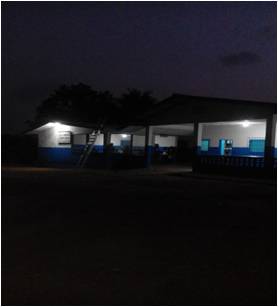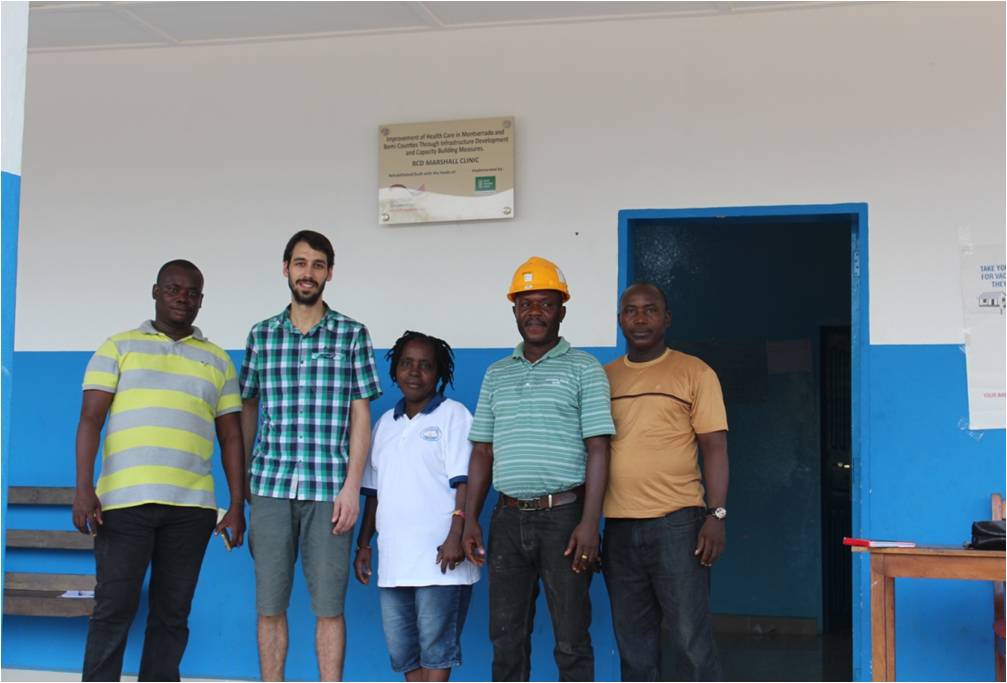The R.C.D. Marshall Clinic improvement is a project of the German Ministry of Economic Cooperation implemented by KfW/WHH/German Agro Action (Welthungerhilfe) to physically improve health care centers in Liberia. For this and further clinics, EnDev/GIZ on behalf of WHH imports, stores and installs 13 identically designed solar systems to provide energy for electricity in different Health Centers and Clinics.
The first solar system at the R.C.D. Marshall Clinic got installed in cooperation with the EU/Save-The-Children in the Youth and Delivery Center in 2012. The aim was to guarantee light in all rooms and to replace kerosene lamps in these facilities. As well, EnDev/GIZ takes care of the maintenance of this older system. The new and bigger solar system has been installed in November 2017 as part of 13 systems for different clinics to extend the electricity supply; so it also can be used to charge electrical devices.
These two solar systems now in operation have improved the maternal and general health care of the patients and working conditions for the staff considerably. There is no other generator or LEC - all electricity for the clinic comes from the solar systems.

The R.C.D. Marshall Clinic lightened at night through solar power.
On January 10th 2018, the EnDev/GIZ Team has visited the installation again to discuss further optimization. Both systems are running well. As the second solar system provides not only electricity for the lights but also for household devices, it is important to balance electricity consumption. This seems strange in the beginning. Why should it not be possible to run a fridge and to turn the light on at the same time? There are two different forms of electricity: DC (Direct Current) power for light supplied by solar power, and AC (Alertanting Current) power for household devices, where the DC electricity from the panels and batteries needs to be converted into AC power first. However, the first and utmost priority for the clinic is to ensure continuous light supply. The nurse Chelnisa M. Wesseh switches the AC supply on at 10:00 am and turns it off around 2:00 pm. The technicians from EnDev/GIZ want to program the system in such a way that it automatically switch off the AC supply at a certain stage of discharge of the batteries. AC power use including phone charging is then not possible anymore. This ensures that the batteries can be used for sufficient light during nighttime and cannot be overused during the day time.
Chelnisa M. Wesseh is a nurse at the R.C.D. Marshall Clinic and takes care of the solar systems. She said that she got trained how to handle the system and she herself trained the other members of the staff. She answered to the question: How satisfied are you with the solar system and how reliable is it? “We are very satisfied! The system is running well and we hope and expect that it last for a very long time.” Similar to Chelnisa M. Wesseh, the construction engineer of the WHH Ansu Fofana said that they have been very happy with the solar systems and will monitor how the second systems works to potentially think about further and broader applications of solar power in this and other clinics.

The picture shows from left to right: Ansu Fofana construction engineer of WWH; Johannes Weber EnDev/GIZ Technician, Chelnisa M. Wesseh, Nurse at the R.C.D. Marshall Clinic; Momo Torkson, EnDev Senior Technician and Trainer and Freeman Godu EnDev Technical Coordinator.
